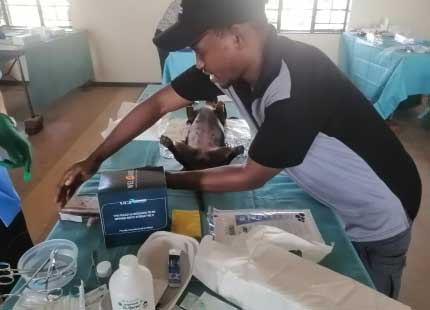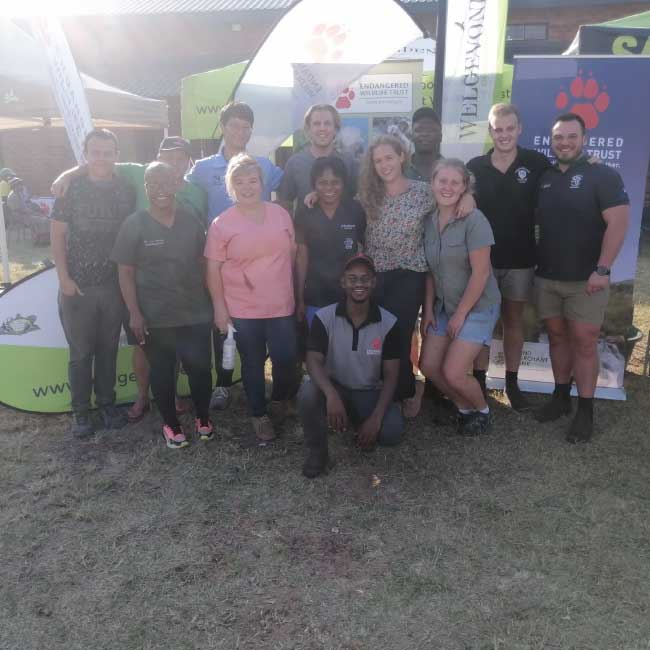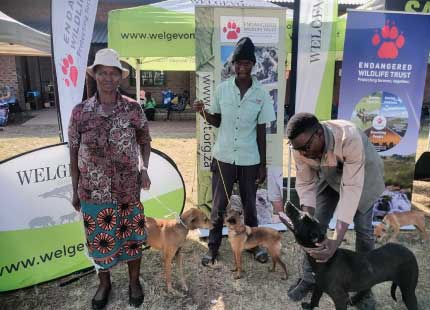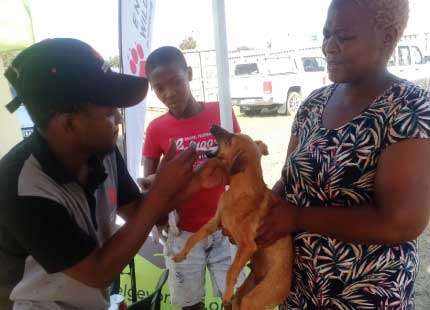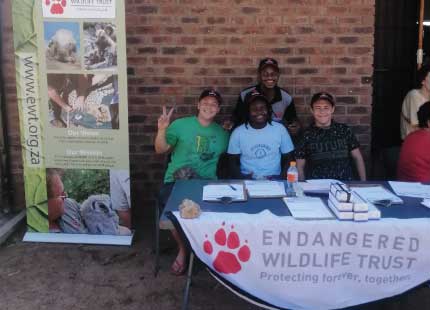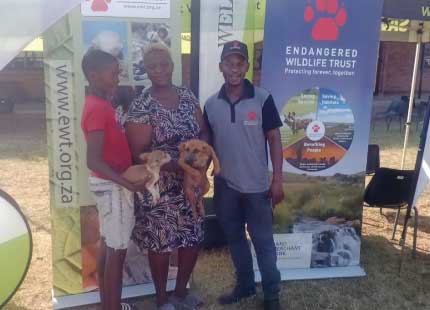Commemorating 50 Years of Conservation Excellence – Spay Campaign in Vaalwater
Kedibone Chauchau, EWT’s PR and Marketing Coordinator
Half a century after it was founded, the Endangered Wildlife Trust (EWT) has achieved immeasurable gains for wildlife conservation. With more than 110 staff members working across 13 African countries, the EWT is arguably one of the most effective and impactful conservation organisations working across such a diversity of species and ecosystems and collaborating with all relevant stakeholders.
Often recognised for its role in conserving charismatic species like the Wild Dog and Cheetah, the EWT was one of the first organisations to galvanise serious conservation action for vultures across the region. Just as important are the benefits of conservation to thousands of people the EWT has worked with through job creation programmes, education, resource protection and provision, and empowerment of people to take control of their environment and their futures.
The EWT’s relationship with communities in the Waterberg has been strengthened through the carnivore conservation and human-wildlife conflict mitigation work that we do in the area. The Waterberg is a key area for carnivore conservation in South Africa and is home to one of the last free-roaming Wild Dog populations in the country. The EWT works hand in hand with landowners and managers to resolve any carnivore-related issues in the area and teach them and encourage them to teach others how to deal with such issues in a non-lethal way.
One of the ways in which the EWT benefits local communities is through spay campaigns, which are costly and often unaffordable for communities. These campaigns encourage people to bring their dogs in so the EWT and partners can facilitate sterilisation at no cost. In honour of the EWT’s 50th Anniversary, we ran a spay campaign to sterilise 50 domestic dogs and cats in the township of Vaalwater, Limpopo, on 29 and 30 April.
“Sterilising domestic dogs in communities helps to prevent the overpopulation of stray/feral dogs, which can pose a danger to humans. Reducing dog numbers in the area is also critical in preventing the spread the Transmissible Venereal Tumour (TVT) disease or any other diseases amongst domestic dogs and their wild counterparts such as Wild Dogs.” – The EWT’s Carnivore Conservation Programme’s Field Officer, Joseph Hlako.
The Endangered Wildlife Trust collaborated with Prime Crew Animal Rescue and the Welgevonden Environmental Awareness Programme to organise and run the much-needed campaign. With the help of 12 vets, the EWT went well above the target of sterilising 50 dogs and cats. Out of the 185 animals that were brought, 154 were sterilised, including 120 dogs and 34 cats. A special mention to the vets and the individuals that assisted with donations and their time.
The EWT also helps livestock farmers to reduce and prevent predation on their livestock by large carnivores like leopards through the Livestock Guarding Dog project. Game farmers are also assisted with various human-wildlife conflict mitigation strategies, environmental education, skills development, and other interventions implemented in the communities.
The real power for change lies within each of us – in our everyday engagements with people who learn from us, teach us, and join us in our timeless campaign to protect forever, together.
